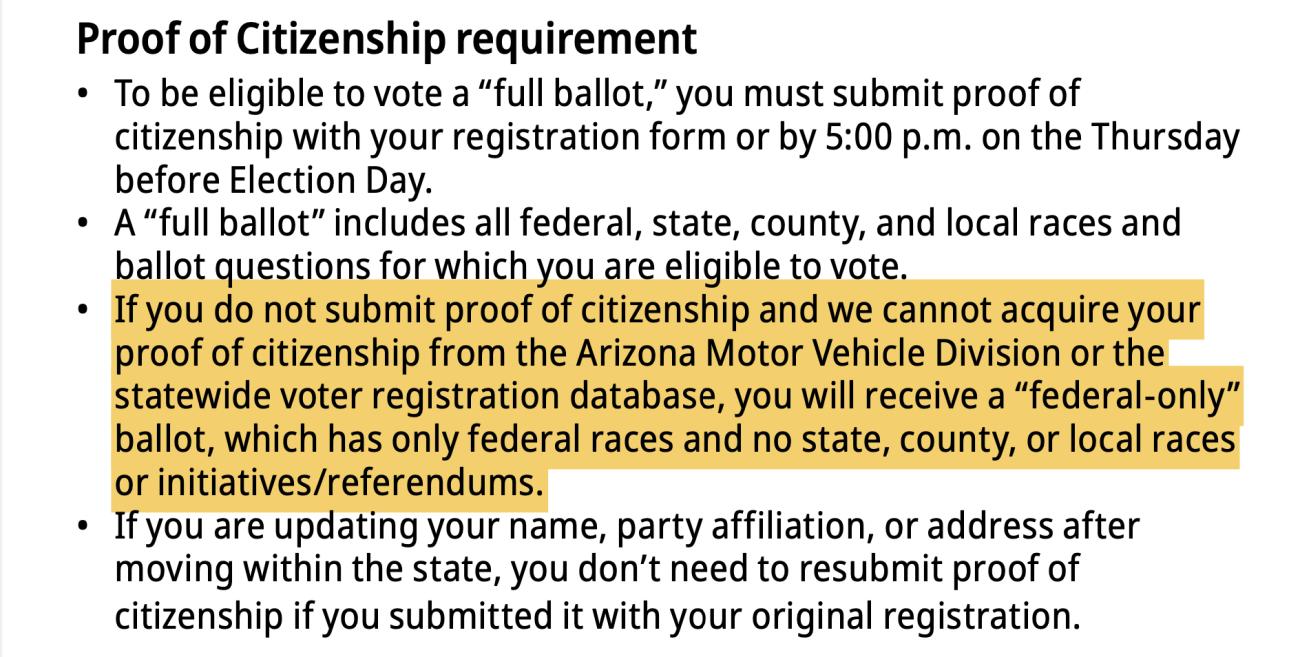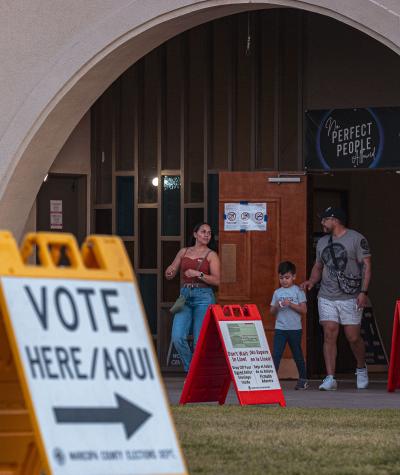Surprise! The U.S. Supreme Court issued an eleventh-hour ruling on Arizona’s election practices and it has already created confusion for voters and election officials alike.
On the bright side, the Supreme Court’s ruling means over 40,000 already-registered Arizona voters can vote in all federal elections — including for president and by mail. This is a crucial victory and cannot be understated as over 40,000 voters will retain their freedom to vote in this year’s crucial elections.
However, the decision will have serious implications for voters who register to vote using the state’s registration form.
As lead counsel for one of the groups — and the 2018 case that preceded it — let me break it down.
Surprise! The Supreme Court's eleventh hour order upending election practices in Arizona has caused confusion. As lead counsel for one of the groups (and the prior 2018 case), let me break it down:
— Danielle Lang (@DaniLang_Votes) August 23, 2024
The Republican National Committee (RNC) sought an "emergency" pause of a district court order in Arizona that prevented portions of two voter registration laws passed in 2022 from going into effect.
Specifically, the RNC asked the Supreme Court to allow three provisions to go into effect that would:
1. Block over 40,000 Arizonans — who were already relegated to being "federal only" voters because they did not provide additional documentation proving their citizenship — from voting for president.
2. Prevent those same 40,000 plus Arizonans from voting by mail at all.
3. Require election officials to reject future state registration forms if a voter did not provide additional documentation of citizenship.
Thankfully, the Supreme Court sided with voters on the first two points, meaning voters who register using the federal form are not required to provide documentation of citizenship for federal elections.
However, the Supreme Court decision will have serious implications for voters who use the state form to register to vote going forward.
With this eleventh-hour decision, the Supreme Court is requiring Arizona to change their voting rules and election officials to suddenly change the state’s registration process just before voters are set to cast their ballots. While it is a relief that the RNC’s request was not granted in full, it is worrisome that three justices would have signed on to completely upend voter registration in the state just months before voting begins.
Why does it matter if folks who cannot provide documentation of citizenship use the federal form?
First, the state registration form now misinforms voters. The highlighted portion is no longer true.

If voters don't submit proof of citizenship with their state forms, their registrations will be rejected, and they will not be able to vote.
Second, election officials and voter registration groups are unprepared for this change and have planned on using state voter registration forms, as opposed to the federal voter registration form, because there was no difference between the two until the Supreme Court's recent order.
Voters are largely going to be offered the state voter registration form, which contains incorrect information. Importantly, an ordinary voter will have no reason to think that the requirements change based on which form they fill out. When Arizona previously had this policy prior to 2018, tens of thousands of applications were tossed in the trash.
What do we do to ensure that every citizen can cast their ballot this November in Arizona? Folks on the ground have their work cut out for them to:
- Integrate the federal form into their operations as an option for those without the necessary documents to provide additional citizenship documentation.
- Advocate for the inclusion of the federal form on state and local websites and in local offices.
- Advocate for updated and accurate instructions on state and local websites and other materials.
- Educate voters and election officials on the option to fix any problems with their form by providing the documentation by the Thursday before Election Day, Oct. 29.
Campaign Legal Center’s fight against this law is still ongoing in the 9th U.S. Circuit Court of Appeals where I will be arguing on behalf of our plaintiffs on Sept. 10.
Our team did amazing work to avert a bigger disaster and over 40,000 voters will still be able to vote because of our efforts. At the same time, it is extremely disappointing to see the Supreme Court ignore its own statements on changing election rules at the last minute at the expense of voters and over the warnings about the disruption this will cause to the election.
Our democracy works best when every American can participate in it without barriers. CLC will continue our work in Arizona and nationwide to prevent unfair voter purges targeting naturalized citizens and make sure every citizen can vote in the 2024 election.

